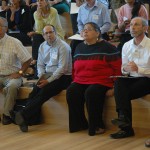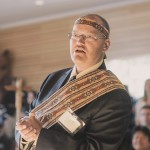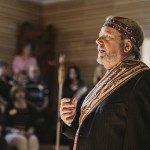Elders stressed that best practices in indigenizing would include making language and particularly language immersion an important part of indigenization. Indigenous teaching methods – employing patience, and teaching with love, with “no slapping or yelling” — were recommended as well, rather than token efforts (“not enough to take a non-indigenous program and slap a name […]
Archive | Reports and Summaries
“We must critically examine our practice”: Faculty reflections on hiring, retention, tenure, and promotion
A department that is overly concerned with questions of “ fit” (how well does the applicant fit in with the department?) should be challenged –using themes like colonialism — to critically examine their practice. Departments were urged to be self-reflective about how they treated the “token” aboriginal scholar in their department, as one aboriginal person […]

It is very easy to underestimate the challenges involved — UFV Caucus Reflections
Staff (Caucus) observed that it was very easy to underestimate the challenges involved, and wondered how to make the curriculum more balanced for aboriginal students, and if there were a way to incorporate and promote understanding through staff training and development. It was suggested that ceremonial activities, like sweats, were important to indigenization, as they […]

Learn to think with your heart: Reflections on Indigenizing the Academy
Indigenizing the Academy workshops produced a lot of reflection around the best way forward for everyone, indigenous and non-indigenous alike. It was noted by Senior Administrators that Student retention was closely tied to support structures, including a culturally safe (decolonized) space, funding support, daycare support, community involvement, aboriginal advisors, elders in residence, and Indigenous faculty and programming. Elders […]

Personal and Institutional Reflections on Indigenizing the Academy– Report from Senior Administrators
Dr. Mark Evered, UFV During Senior Administration workshops, it was noted that Student retention was closely tied to support structures, including a culturally safe (decolonized) space, funding support, daycare support, community involvement, aboriginal advisors, elders in residence, and Indigenous faculty and programming. Elders and community members should be most welcome; and Traditional Knowledge could […]
